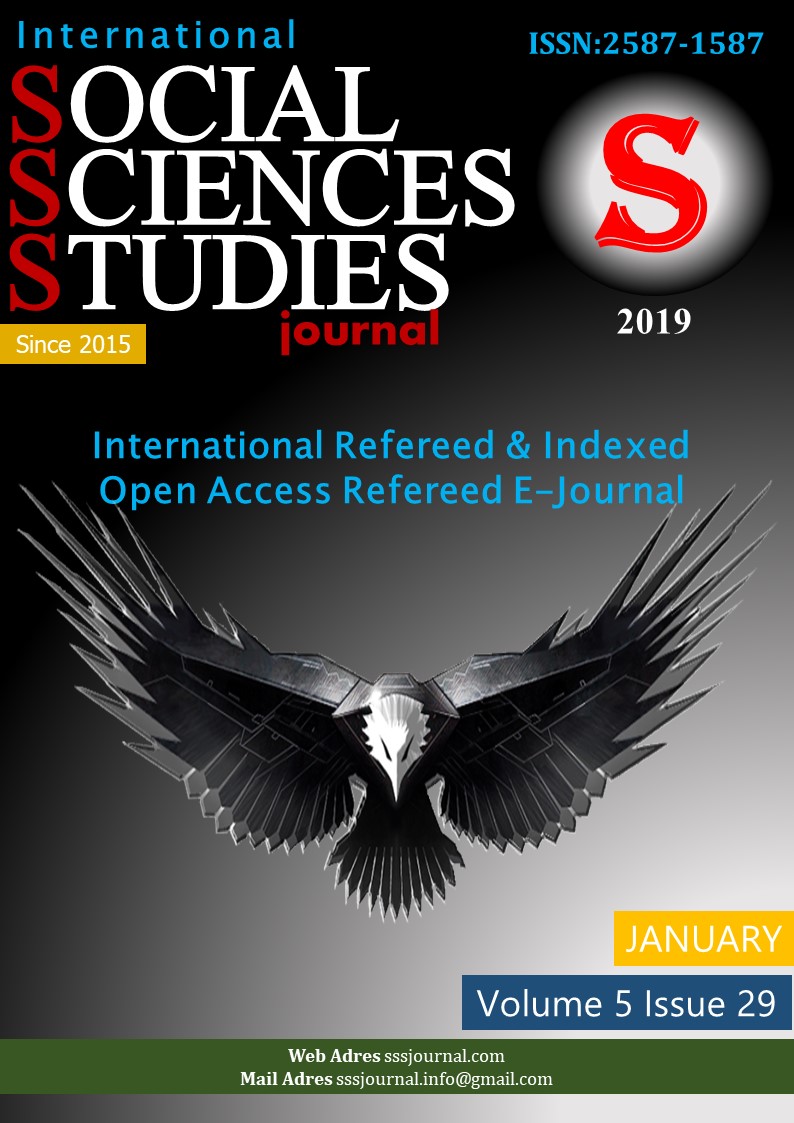Patrick Süskind’in “Maître Mussard’ın Vasiyeti” ve “Amnesie In Litteris” Adlı Kısa Öykülerinde Varoluşu Gerçekleştirme Aracı Olarak “Okumak”
Author :
Abstract
Patrick Süskind, Alman edebiyatının, hiçbir yere röportaj vermeyişiyle ve kendisine verilen ödülleri kabul etmeyişiyle en sıra dışı ve kendine has üslubuyla kaleme aldığı eserleriyle en önemli yazarlarından birisidir. 1995 yılında yayımlanan ve dört kısa öyküden oluşan “Üç Buçuk Öykü” adlı eserinde yer alan “Maître Mussard’ın Vasiyeti” adlı öyküsü, ölmek üzere olan kuyumcu zanaatkar Bay Mussard’ın varlığın anlamına ilişkin son sözlerini içerir. Hayatı boyunca çok sayıda kitap okumuş birisi olan Bay Mussard en sonunda, varlığın anlamı ve sonuna ilişkin acı veren hakikati keşfetmiştir. Buna göre “dünya acımasızca kapanan bir midye kabuğudur”. Bu çalışmada, Bay Mussard’ın varlığın anlamına ilişkin sonuçlandırıcı tespitine ulaşırken yol göstericisi olan okuma ediminin rolü, yine “Üç Buçuk Öykü” adlı eserde yer alan “Amnesie in litteris” adlı hikayeden de faydalanılarak anlaşılmaya çalışılacaktır.
Keywords
Abstract
Patrick Süskind is one of the most extraordinary writers of German literature, who refused to give any interviews and refuse awards given to him and one of the most important writers of German literature, with his works written in his unique style. “Three Stories and a Reflection”, published in 1995, contains four short stories. “Maître Mussard's Bequest”, one of these stories, contains the last words of the dying jeweler craftsman, Mr. Mussard, about the meaning of existence. Mr. Mussard, who has read many books throughout his life, has finally discovered the painful truth about the meaning and the end of the life. According to this, “the world is a mercilessly closing mussel shell”. In this study, we will try to understand the role of reading as a guiding act for Mr. Mussard to achieve his conclusive determination of the meaning of existence, with the help of the story “Amnesie in litteris”, another story in the work “Three Stories and a Reflection”
Keywords
- Akarsu, B. (1994). Çağdaş Felsefe - Kant’tan Günümüze Felsefe Akımları, İnkılâp Kitabevi, İstanbul.
- Akarsu, B. (1994). Çağdaş Felsefe - Kant’tan Günümüze Felsefe Akımları, İnkılâp Kitabevi, İstanbul. Cevizci, A. (2017). Büyük Fesefe Sözlüğü, Say Yayınları, İstanbul:
- Colette, J. (2006). Varoluşçuluk. I (Çev.:Işık Ergüden), Dost Kitabevi Yayınları, Ankara. (orijinal baskı tarihi 1994)
- Çüçen, A.K. & Zafer, M.Z. & Esenyel, A. (2014). Varlık Felsefesi, Ezgi Kitabevi, Bursa.Heidegger, M. (2011). Varlık ve Zaman (Çev.:H. Kaan Ökten), Agora Kitaplığı, İstanbul.
- Kaya, N. (2004). Das Chthonische bei Patrick Süskind. Gedanken über “Das Vermächtnis des MaîtreMussard”. Ege Alman Dili ve Edebiyatı Araştırmaları Dergisi, VI. Ege Üniversitesi Edebiyat Fakültesi Yayınları, İzmir.
- Kızıler, F. (2006). Moderniteden Postmoderniteye Kavramsal Bir Yolculuk ve Patrick Süskind’in Parfüm Adlı Romanında Postmodernist Açılımlar, Salkımsöğüt Yayınevi, Konya.
- Leigh- Anderson, S. (2014). Kierkegaard Üzerine (Çev.:Gökhan Gürdal), Sentez Yayıncılık, Bursa. Süskid, P. (2015). Üç Buçuk Öykü (Çev.:İlknur Özdemir), Can Sanat Yayınları, İstanbul.
- Taslaman, C. Din Felsefesi Açısından Entropi Yasası, M.Ü. İlahiyat Fakültesi Dergisi. 30 (2006/1), 89-111, İstanbul.





